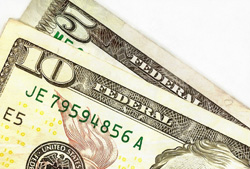As a teacher, you are well suited to helping your students learn both by teaching them and by setting a great aexample. The information and understanding you impart to your students can change the course of their lives.
Sometimes, great teachers spend so much time devoted to their profession that they don’t pay enough attention to their own financial needs. One of the most important long term needs is retirement planning.
Many teachers are covered by state pension plans, but that probably won’t be enough to cover all of your retirement expenses. It will be necessary to accrue additional savings in order to live comfortably in retirement.
There are all sorts of excuses as to why you may put off this important planning, but it’s important to get started now.
Problem 1: “I Don’t Have Any Extra Money to Invest” 
If this is the case, and you are spending everything you earn, it’s time to find ways to reduce your expenses.
For example, that daily $3 cup of Starbucks coffee really adds up over time. Why not bring a thermos from home and save hundreds of dollars per year? THere are many other examples in your daily life of small expenses that end up costing hundreds or even thousands per year.
Not only that, but if you invest that savings, you take advantage of the power of compounding, and over time, that savings keeps growing. Not only do you earn ongoing interest on the original amount you invested, but you also earn interest on that interest. Over time, that really begins to add up.
Problem 2: Credit Card Debt
How much money do you owe on your credit cards? This is a major problem for many people. It’s way too easy to charge something you may not even need, and then, because you run a balance on your card each month, you end up paying much much more for your purchase.
It’s time to get a handle on this problem. Here are some tips:
- Stop and think about each purchase before you pull out that card. Do you really need it? Do you really love it? If you’re not sure, wait 24 hours before deciding to buy.
- Know what you currently owe. Gather all of your credit card statements together and look at the balance on each one. You may be in for a shock when you see how long it will take you to pay off your balance if you only pay the minimum due each month. And then remember, that assumes that you don’t continue to make additional charges each month.
- Pay off the balance on the credit cards with the highest interest first, but make sure to pay the minimum on all of your accounts each month. Otherwise, you could be hit with higher rates and late fees.
- This also applies to any other high interest debt you have, such as car or student loans. Keep in mind that interest on a home mortgage may offer some tax advantages, which lowers the effective interest rate.
- Gaining control over your finances is a life-long endeavor, and following these tips can help you get started.
Gaining control over your finances is a life-long endeavor, and following these tips can help you get started.